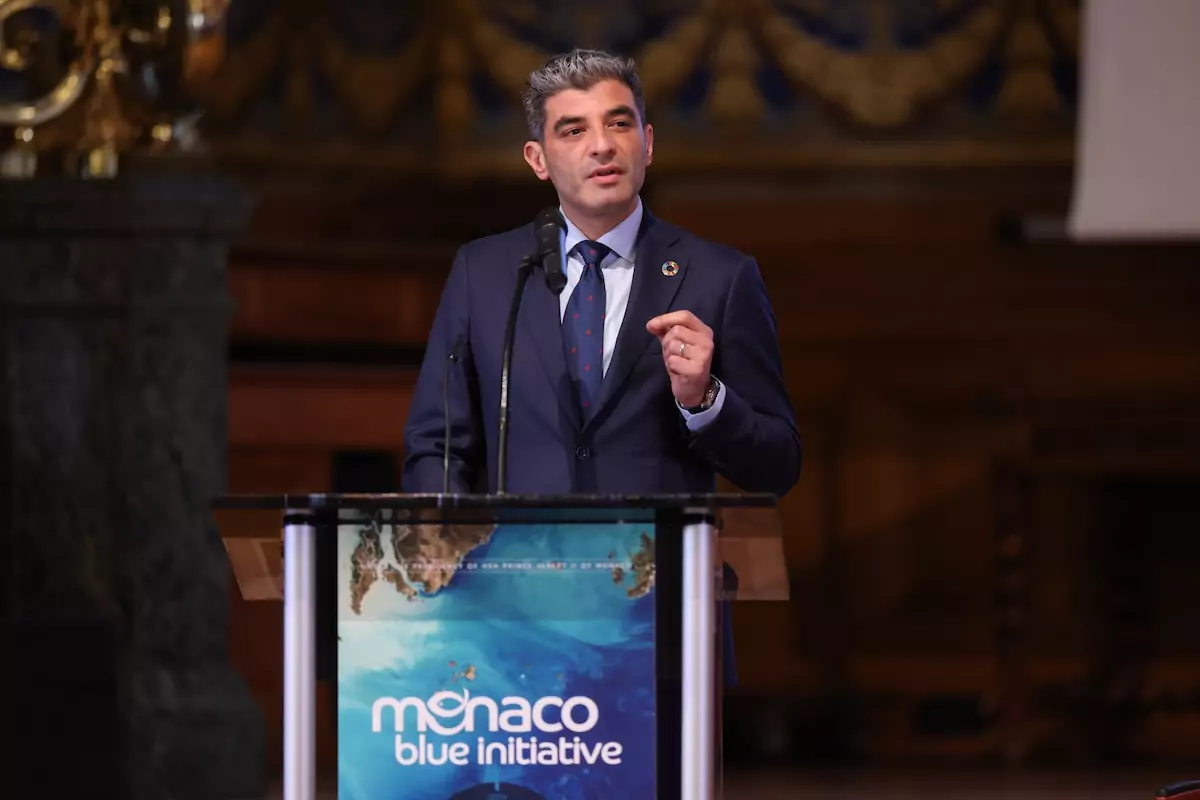Monaco is leading the way in ocean conservation and sustainability, driven by the vision of Prince Albert II and the dedicated efforts of his Foundation. In this interview, Monaco Life’s Editor in Chief Cassandra Tanti delves into milestone ocean initiatives with Olivier Wenden, Managing Director of the Prince Albert II of Monaco Foundation, including the game-changing $100 million ReOcean Fund.
Olivier Wenden was appointed as the Vice President and CEO of the Prince Albert II of Monaco Foundation by the Prince in 2019. He has played a crucial role in the Foundation’s international growth and its fundraising strategy.
Monaco Life: Monaco made history in May by becoming the first European and Mediterranean state to ratify the Agreement on the High Seas, known as the BBNJ Agreement. Can you tell us more about the BBNJ Agreement and its importance?
Olivier Wenden: The BBNJ Agreement reinforces an existing treaty on The Law of the Sea and is a groundbreaking step towards the comprehensive regulation of the high seas, which constitute 70% of the global ocean. Historically, this vast area has been unregulated, essentially belonging to no one, which left it vulnerable to unregulated fishing, shipping, mining, and other activities. The agreement, reached after 20 years of negotiations, represents a major shift in our approach to ocean governance. By bringing this area under regulation, we can now implement measures to protect marine biodiversity, ensure sustainable use of marine resources, and address issues such as overfishing and pollution. Given that the ocean covers 70% of our planet and the high seas make up 70% of that area, this agreement is crucial for the health of our oceans and, by extension, the health of our planet.
What role did Monaco play in securing this agreement?
Monaco has always been a strong advocate for ocean conservation. Our Principality was the fourth country to ratify the BBNJ Agreement, and the first European and Mediterranean state to do so. This early ratification demonstrates Monaco’s commitment to leading by example in environmental stewardship.
Monaco’s proactive stance has been instrumental in pushing the agenda forward, both by rallying other nations to join the agreement and by participating in the international dialogue that shaped it. Our involvement underscores the importance of small states in driving global environmental policies and highlights Monaco’s dedication to marine conservation, which is a key priority for us.
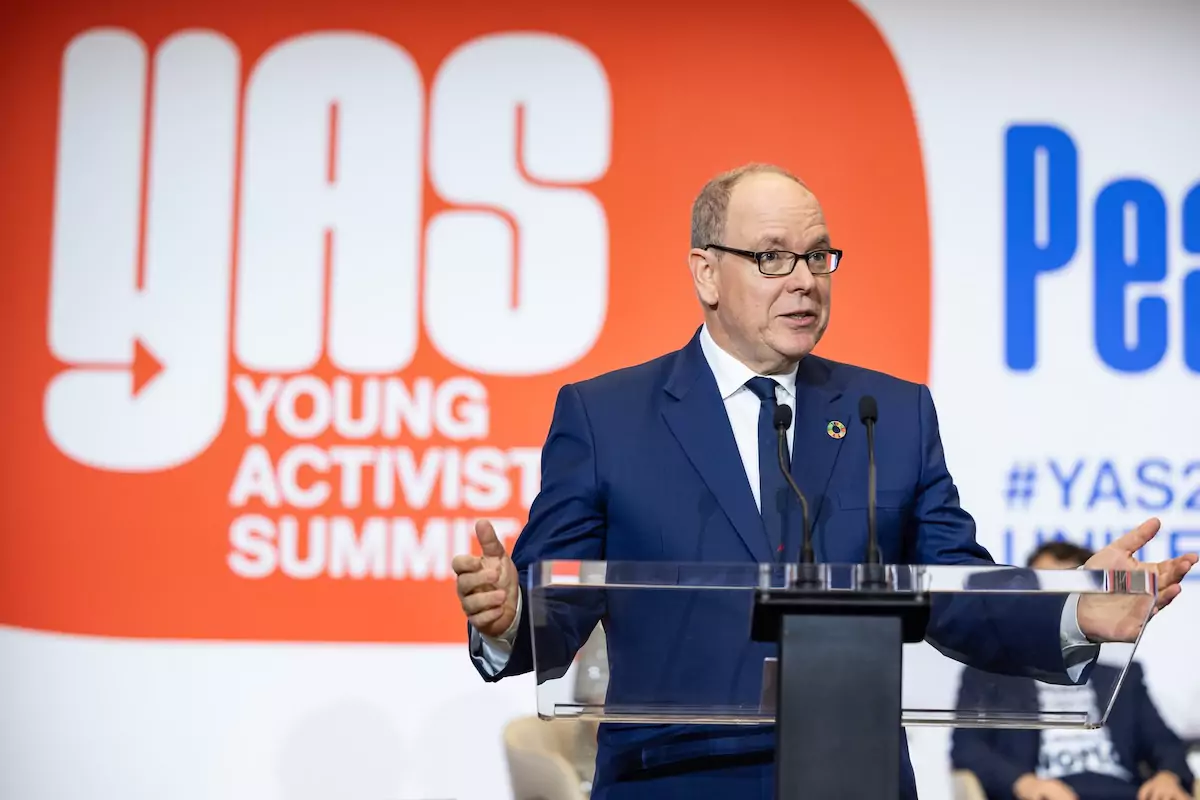
What are the next steps for the BBNJ Agreement?
Now that the agreement has been reached at the United Nations’ level, the next critical step is ratification by at least 60 countries. This is necessary for the agreement to come into force. Each country must go through its own parliamentary procedures to ratify it, which can be time-consuming. The UN Ocean Conference, which will be hosted by France and Costa Rica in Nice in June 2025, will be a significant event where we aim to gather more support for ratification.
Additionally, Monaco will host a Blue Economy and Finance Forum on 7th and 8th June 2025, at the request of French President Emmanuel Macron. This forum will be crucial in engaging major financial stakeholders and convincing them that investing in the Blue Economy is not just philanthropy, but a viable and profitable part of the real economy.
What other key agreements are in place to protect the ocean and biodiversity?
In addition to the BBNJ Agreement, there are several other key agreements aimed at protecting our oceans and biodiversity. The Kunming-Montreal Global Biodiversity Framework (GBF) was adopted in December 2022 and commits UN member states to protecting 30% of the world’s land and seas by 2030. However, there has been no progress; we are behind schedule on every aspect of this framework.
Another significant agreement under negotiation is the Plastics Treaty, which aims to end plastic pollution by 2024 through the establishment of a circular economy. This would ensure that all plastics are responsibly managed throughout their lifecycle, from production and use to end-of-life disposal, ultimately leading to a climate-neutral plastics industry. These agreements are critical in addressing the interconnected crises of climate change, pollution, and biodiversity loss.
After 20 years of talks, things are now moving. Too slow for sure, but it is finally time for the ocean.
Listen to the full interview with Cassandra Tanti in our Podcast on Spotify…
How is the Prince Albert II of Monaco Foundation contributing to these efforts?
The Prince Albert II of Monaco Foundation is actively contributing to these global efforts through various initiatives. One of our major undertakings is the Re-Ocean Fund, a Private Equity Fund launched to invest in the Blue Economy. It took us two years to assess the market and identify the Blue Economy as the fastest-growing sector of the global economy today. This fund focuses on five key areas: blue food, like plant-based steaks which are becoming more popular in Europe; plastic – pollution prevention or plastic alternatives; green shipping and yachting; data – including AI – to improve energy efficiency, preserve fish stocks, prevent whale collisions with ships, etc.; and ecosystem protection and restoration, which is the least documented pillar of investment, but it is definitely an area of great development. So these five verticals can bring innovative solutions to Monaco, which can then be presented to the world as viable options.
The Blue Economy today is what the Green Economy was 15 years ago, and we see a massive potential for growth and impact. By investing in these areas, we aim to drive sustainable development and create economic opportunities while also protecting marine ecosystems.
See more: Prince Albert launches ReOcean fund to encourage private investors to save the oceans
What challenges do you see in achieving these goals?
There are several significant challenges we face in achieving these goals. One major challenge is the need to establish more Marine Protected Areas (MPAs). Currently, the high seas are largely unregulated, and MPAs have proven to be the best tool for allowing marine life to thrive by reducing human pressures. However, establishing and enforcing MPAs requires significant resources and international cooperation. As Conservationist Enric Sala, a good friend of Monaco, explained in Athens during the Our Ocean Conference, we need to create 40 new MPAs per day until the year 2030 to meet the 30×30 objective (which aims to protect 30% of the Mediterranean Sea by 2030). It seems incredibly hard to reach that objective, but sometimes you have to dream big to meet reasonable objectives.
While it is easy to declare an MPA on paper, the aim is to have fully protected marine areas. Therefore, we have pooled our resources and expertise with the Bertarelli Foundation to co-design an agreement that funds fully protected marine areas.
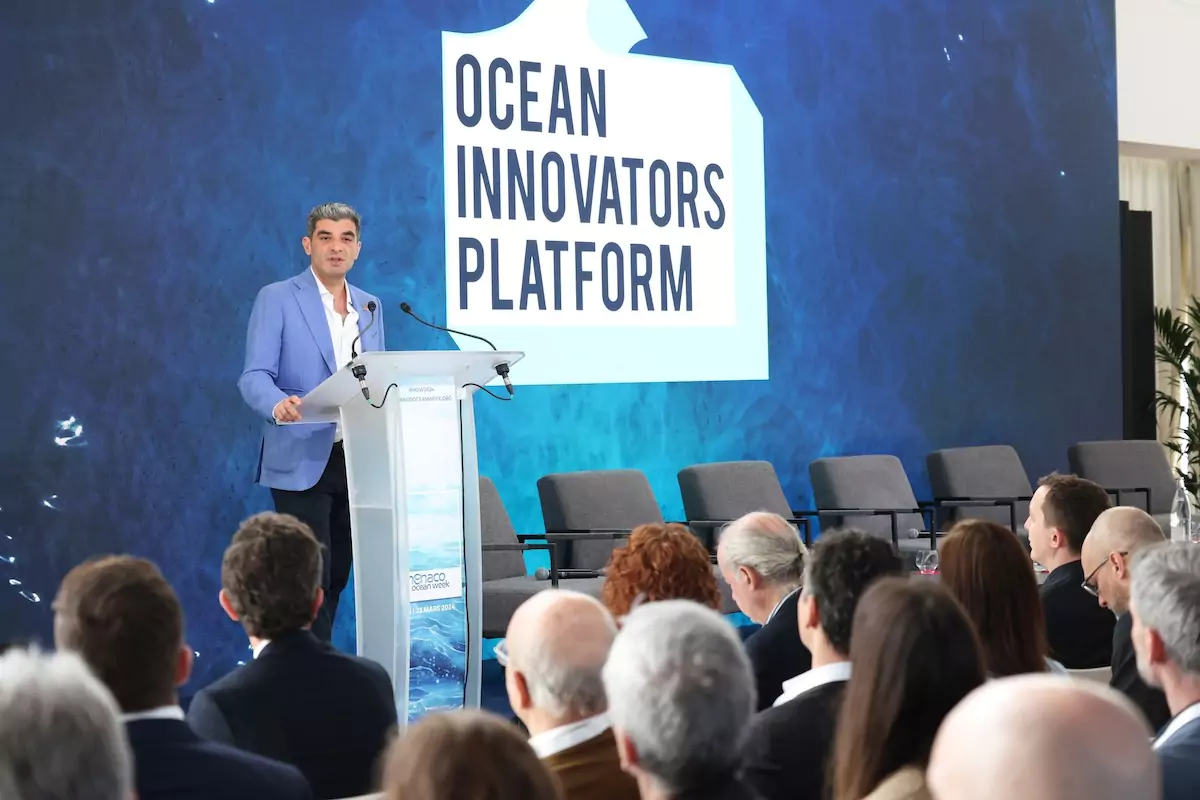
Another challenge is addressing plastic pollution, which is pervasive and requires a comprehensive approach to manage. Our initiatives, such as BeMed for plastic pollution and the MedFund for MPAs, are designed to address these challenges by scaling successful projects globally. We also need to shift the narrative and approach towards ocean conservation, moving from a purely philanthropic model to one that includes substantial private sector investment. This requires convincing investors of the economic potential of the Blue Economy and demonstrating that sustainable investments can yield significant returns.
Can you explain how the Blue Economy is central in addressing these challenges?
The Blue Economy is crucial because it addresses multiple challenges simultaneously. When we embarked on this journey with the private sector, we identified a significant financing gap for Sustainable Development Goal (SDG) 14 ‘Life Underwater’, which the World Economic Forum estimates at roughly $175 billion per year. To bridge this gap, we targeted major players in the private sector, such as the shipping and fishing industries, as well as sovereign funds, pension funds, and banks.
Scientists have warned about the deteriorating state of our oceans for over 70 years, but nothing has really changed. Recently, however, the economic landscape has matured, making it the right moment to scale up efforts and address these issues with key industry players through initiatives like our ReOcean private equity fund. The narrative we promote is that investing in the Blue Economy offers massive potential returns and economic opportunities while positively impacting ecosystems. Instead of merely appealing to conservation for its own sake, we emphasise the tangible economic benefits and sustainable impact, which is a more pragmatic and effective approach.
The private equity fund, which is a joint venture with Monaco Asset Management, is a 10-year programme. We have a governing body that is made up of an investment committee, an advisory committee, and an impact committee. The beauty of this fund is, given the expertise of its members, that we can have an expert understanding of the potential impact, be it good or bad, on the ecosystem of a potential investment.
The committee also possesses veto power to block investments if there are concerns about an impact on the environment, or the ethics or governance of a company that we are interested in. This is what makes us different from the other 44 Blue Funds on the market.
So, I reiterate that there is a $175 billion gap per year in funding, and only 44 Blue Funds today in existence, all in the vicinity of $100 to $150 million to be deployed. You can see the massive short fall there. The aim of the ReOcean Fund is to scale up existing solutions that work; 80% of the fund will be targeted to companies in growth, Series B, and this is where the largest gap in financing exists currently.
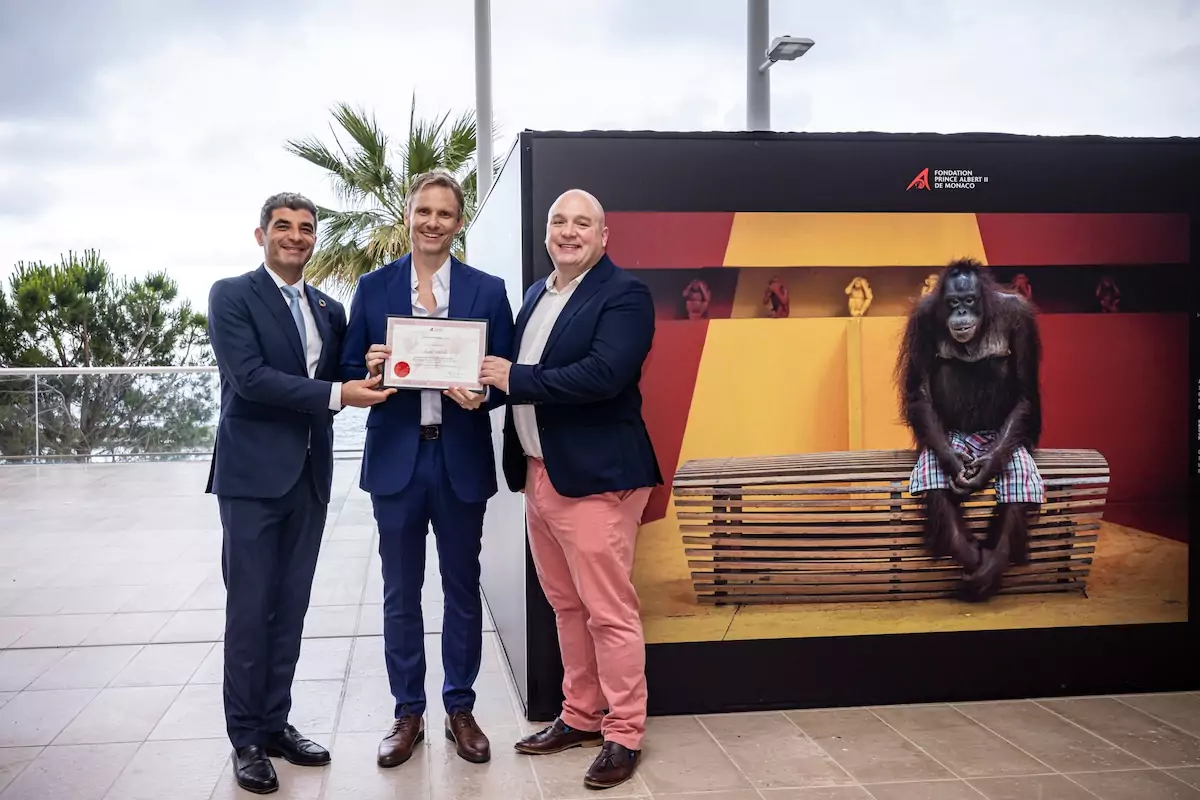
How does the Foundation engage with the local community in Monaco?
Engaging with the local community in Monaco is a key aspect of our work. We have launched initiatives such as the Environmental Photography Awards and the Green Shift Festival to raise awareness and inspire action. These initiatives aim to move beyond intellectual discussions of ecology and create emotional connections with environmental issues. The Environmental Photography Awards, for instance, showcase powerful images that highlight the beauty and fragility of our natural world, while the Green Shift Festival combines art, music, and philosophy to inspire a positive vision for the future. These events help to engage the local community, including families and young people, and foster a sense of collective responsibility for environmental protection.
How has the Foundation evolved under your leadership over the past five years?
Over the past five years, the Foundation has undergone significant evolution. We have structured a new vision and strategy, focusing on strengthening our relationship with the private sector and launching new initiatives. The pandemic, despite its challenges, provided a unique moment of pause that allowed us to rethink our approach and develop a comprehensive strategy for the next five years. This includes the launch of new programmes on land, forest, and community conservation, as well as joint efforts to address polar region challenges. We’ve also expanded our team to 30 members and opened a new office in São Paulo to enhance our global impact. This expansion will allow us to support local communities and deploy new projects that address both environmental and social challenges.
The Foundation’s achievements are a testament to the dedication of our team, the support of our donors, and the visionary leadership of our chairman, Prince Albert II.
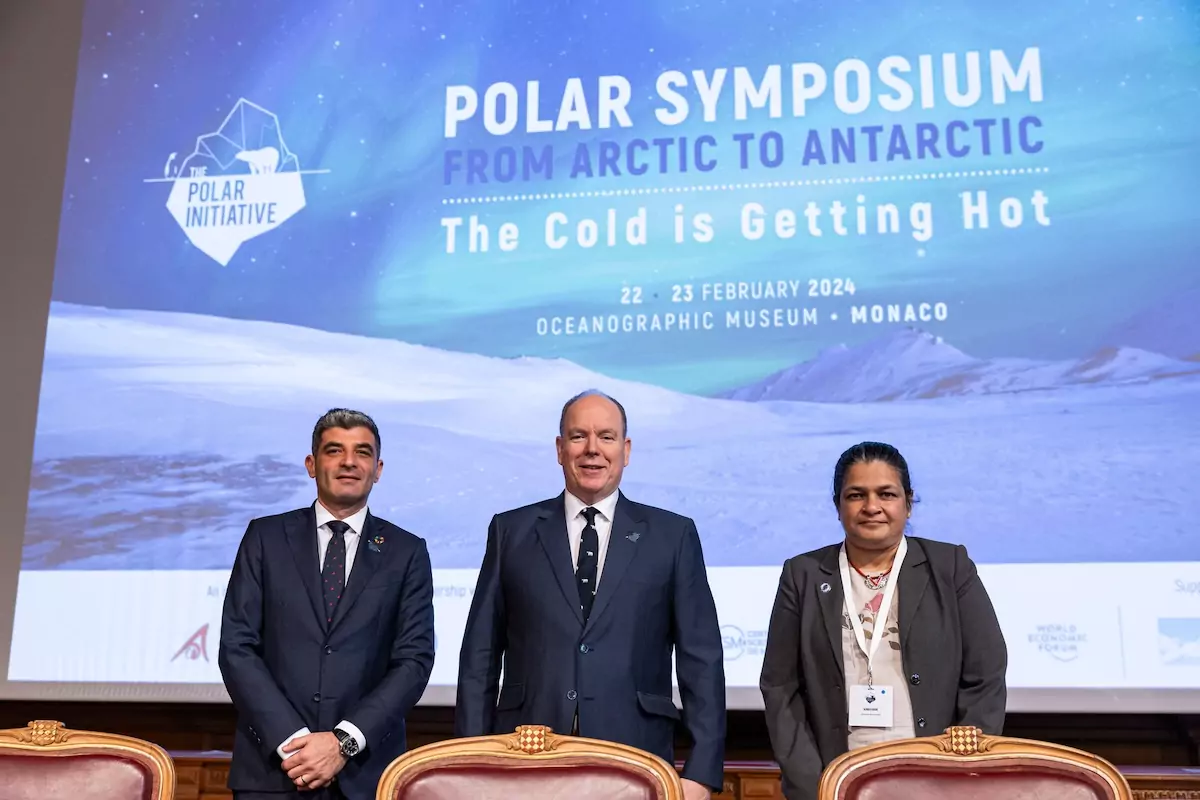
What are the Foundation’s future goals and upcoming initiatives?
Looking ahead, we have several ambitious goals and initiatives planned. One of the key upcoming events is the Blue Economy and Finance Forum, which we will host in Monaco on 7th and 8th June 2025. This forum aims to bring together major financial stakeholders to discuss and promote investment in the Blue Economy. We also hope to have the first closing of over 100 million euros in fundraising for the ReOcean Fund by next June, with the goal of deploying capital to promising Blue Economy ventures. The fact that the Blue Economy and Finance Forum is being held in Monaco is a significant acknowledgement of Prince Albert’s vision and long-running leadership on this topic. It is also huge momentum for everyone involved – the Foundation, the Monaco Government, the Oceanographic Museum, the Scientific Centre of Monaco – to showcase the successes and new projects that we will be driving.
There is also the Osaka World Expo, which will provide significant platforms to showcase our initiatives on land and at sea.
Then we have the 20th anniversary of the Prince Albert II of Monaco Foundation in 2026, which is very significant.
But essentially, our goal is to continue to scale successful solutions and drive global change.
Monaco Life is produced by real multi-media journalists writing original content. See more in our free newsletter, follow our Podcasts on Spotify, and check us out on Threads, Facebook, Instagram, LinkedIn and Tik Tok.
